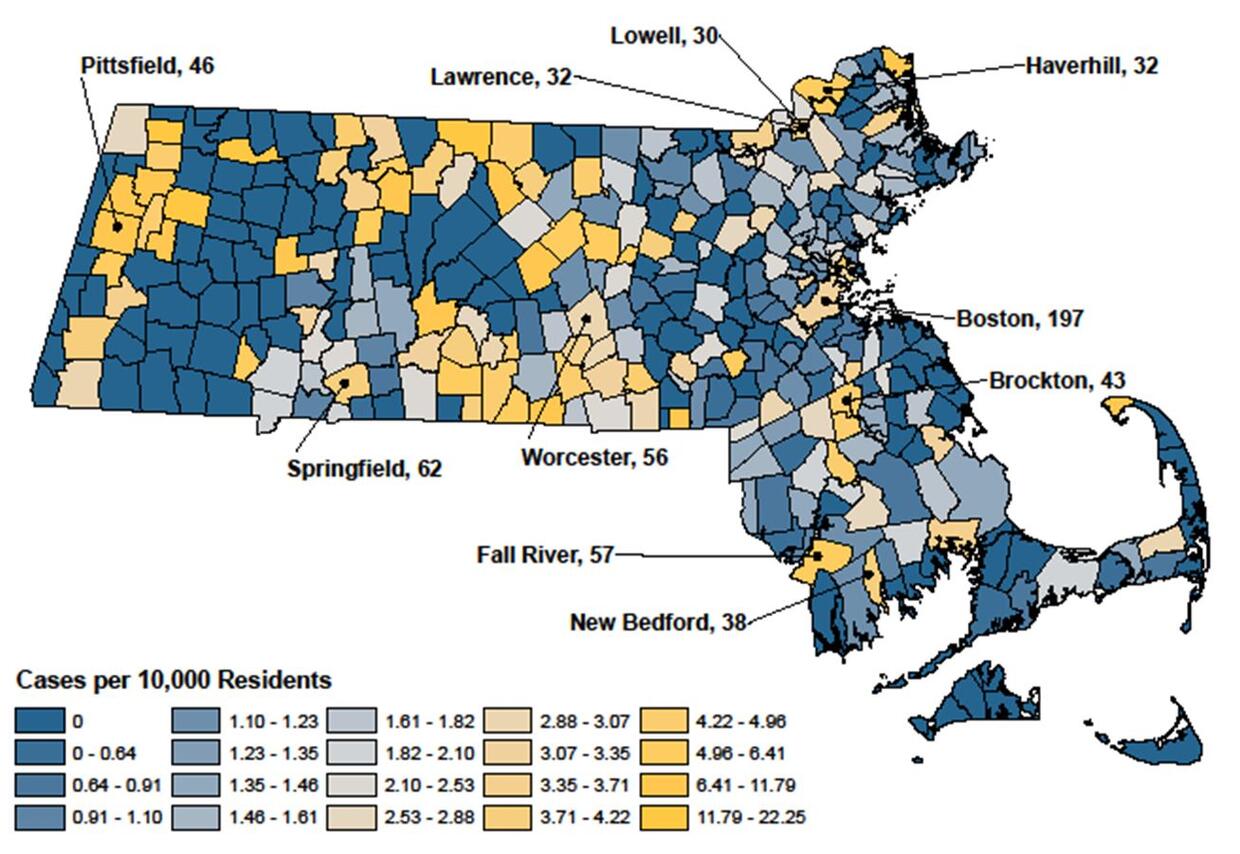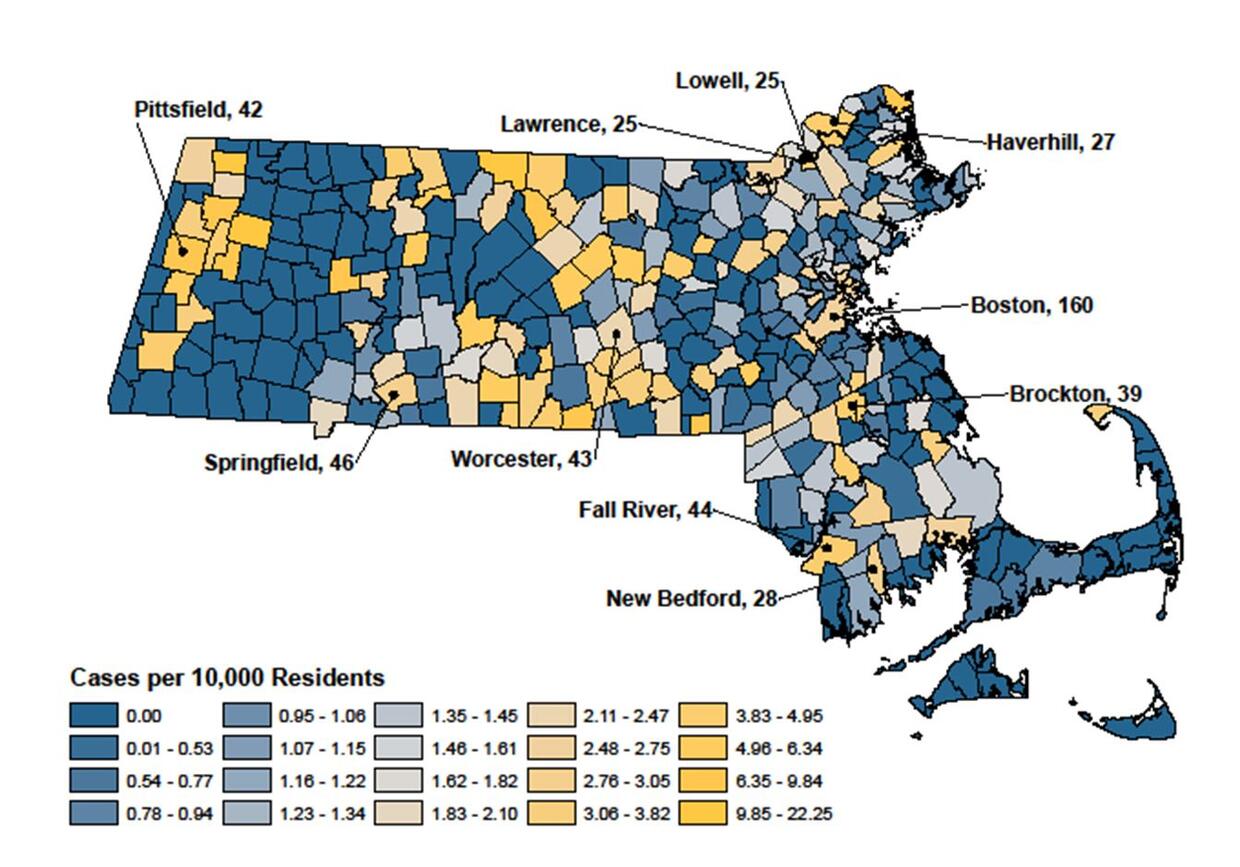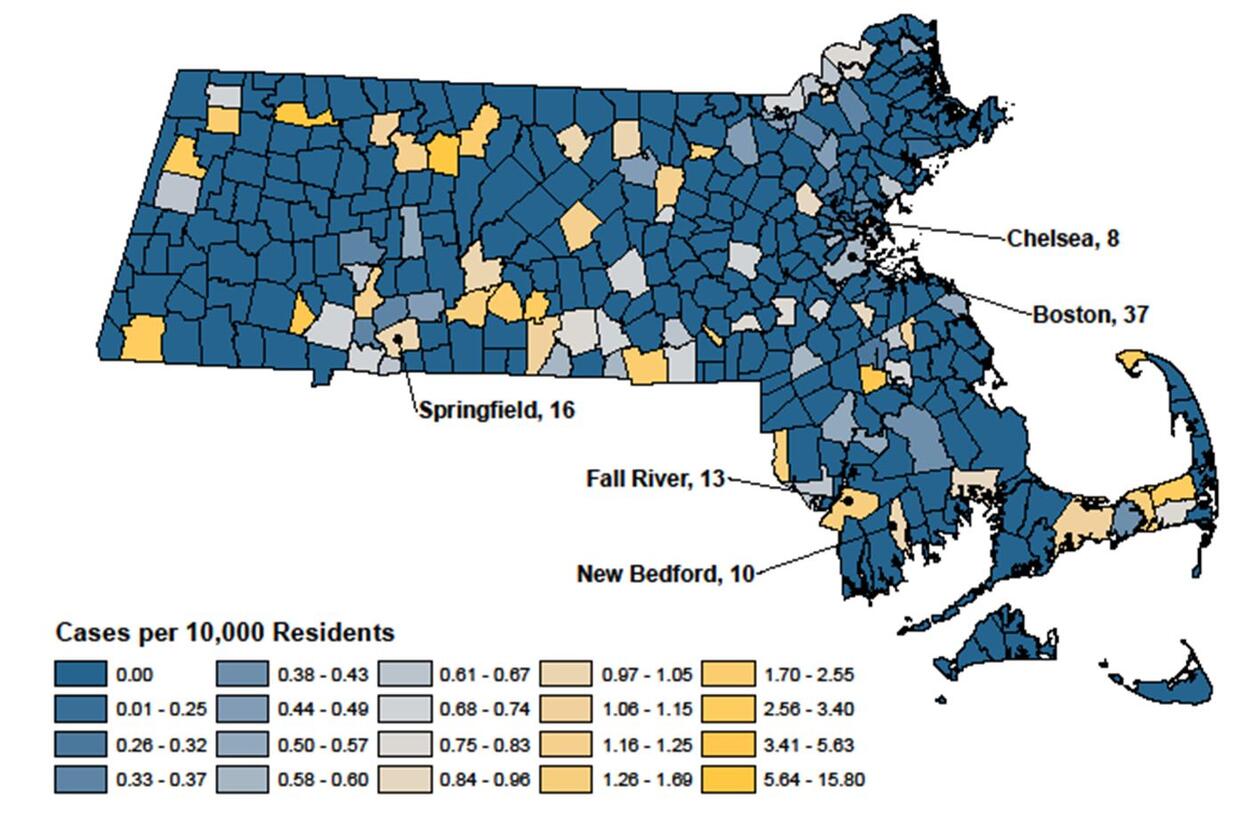Overview
According to the Office of the Child Advocate’s (OCA’s) website, the agency’s mission is “to ensure all children in the Commonwealth receive appropriate, timely and quality services with full respect for their human rights.” Under Section 2 of Chapter 18C of the Massachusetts General Laws, it is also required to, among other things, “investigate and ensure that the highest quality of services and supports are provided to safeguard the health, safety and well-being of all children receiving services.” However, the amount of data that OCA receives regarding instances of child abuse is limited, which may inhibit its ability to effectively fulfill its mission.
Specifically, Section 51B of Chapter 119 of the General Laws requires the Department of Children and Families (DCF) to notify OCA of substantiated reports of abuse or neglect that take place in institutional (“out-of-home”) settings licensed or funded by the Commonwealth (see Appendix A). These institutional settings include licensed preschools and daycares, foster care environments, group homes, residential treatment programs, elementary and secondary schools, and youth correctional facilities. The reports include sexual abuse data regarding incidents occurring at residential placement facilities, childcare providers, and foster homes. Perpetrators have included a direct care staff member, a husband of a childcare provider, and a foster parent.
However, allegations of sexual abuse against children in non-institutional settings, such as incidents that occur in a home with a biological parent or legal guardian, are not required to be sent to OCA. Instead, these allegations of sexual abuse are reported to DCF, which does not report this information to OCA. In these cases, a mandated reporter1 completes a form called a 51A report and submits it to DCF. The report is reviewed and a decision is made about whether to screen the report in or out.2 The main reasons for screening in a report are concerns for child safety and the existence of a reportable condition under Section 51A of Chapter 119 of the General Laws. DCF’s “Protective Intake Policy” (Policy #86-015) defines “reportable condition” as follows:
Information indicating that a child may have been abused and/or neglected or may be at risk of being abused and/or neglected by a caregiver, or that a child may have been or may be at risk of sexual exploitation and/or human trafficking.
For each report that is screened in, a decision is made on whether the incident constitutes an emergency or non-emergency. An emergency response is completed within 5 working days, and a non-emergency response is completed with 15 working days. DCF then determines whether the allegation is supported. For allegations that are supported, DCF opens a case for intervention, assessment, and action planning. Depending on the seriousness of the allegation, a case can be referred to the appropriate district attorney’s office for prosecution (see Appendix B and Appendix C).
In order for us to assess to what extent incidents of sexual abuse may be occurring in non-institutional settings, OCA provided us with institutional reports (supported 51A and 51B reports) that it obtained from DCF regarding alleged abuses against children in out-of-home settings. This information covered fiscal years 2017 through 2018. OCA also provided us with a list of sexual abuse allegations that were made in the Commonwealth during the period July 1, 2017 through October 31, 2017 that contained both institutional and non-institutional sexual abuse incidents.
This information indicated that from July 1, 2017 through October 31, 2017, DCF received 2,681 reports of sexual abuse against children, of which 1,505 were serious enough to warrant further investigation by DCF and/or area district attorneys. (See the location maps below, which display the top municipalities where substantiated sexual abuse occurred.) Of the 1,505 incidents, 1,482 (98%) were committed in non-institutional settings, and therefore OCA was not required to analyze them.
Although it is not required by law or regulation, we believe that OCA could better achieve its mission of protecting children by receiving detailed information of supported allegations of sexual abuse and other abuse that occur in both institutional and non-institutional settings. In the Office of the State Auditor’s (OSA’s) opinion, not receiving complete information about this issue may inhibit OCA’s ability to effectively advocate for all children in the Commonwealth who are receiving services from state agencies.
All Sexual Abuse Case Locations6
District Attorney Referral Case Locations
Screened-In Supported Case Locations
In response to this issue, OCA provided the following comments:
In the “Other Matters” section of the report, you suggest that the OCA could better achieve its mission if we were to receive detailed information regarding supported sexual abuse allegations for non-institutional settings. As you know from your audit, the OCA carefully reviews all substantiated allegations of any type of neglect and abuse, whether sexual in nature or not, when it occurs in an out-of-home setting.
Additionally, over the past two years, the OCA has devoted time and resources to develop a deeper understanding of child sexual abuse on a systemic level. We have completed an internal analysis of supported sexual abuse allegations in out-of-home settings to understand the types of sexual abuse occurring, and DCF’s response. We have also met with several state agency personnel and community providers to understand the state’s multi-disciplinary response to the sexual exploitation and human trafficking of youth. As a result of all this work, the OCA feels that the current system, which includes law enforcement, the District Attorneys, DCF and the Child Advocacy Centers, is responding to child sexual abuse in an effective way. We are supporting additional funding for the Child Advocacy Centers to enable them to do more work with children and youth with problematic sexual behaviors.
The Child Advocate co-chairs the Child Sexual Abuse Prevention Task Force. The Task Force issued its final report and recommendations in May 2017. The report provides a framework for actions that all youth servicing organizations should undertake to prevent sexual abuse as well as to identify and properly respond to reports of such abuse. Throughout Fiscal Year 2018, the Child Advocate participated in a series of local community meetings to gain insight into the type of supports that local youth serving organizations needed to implement the sexual abuse prevention framework. In collaboration with the Children’s Trust, the OCA is working to sponsor an interactive web-portal to provide the tools to implement the framework and to provide appropriate training to staff and volunteers.
The OCA is currently launching a multiagency review, and ultimate rewrite, of the Mandated Reporter Statute. This effort will present an opportunity to address child sexual abuse from the point of view of potential reporters, and to identify any gaps that may exist.
As you know, we requested from DCF a list of all reports of sexual abuse for non-institutional settings. This report contained all allegations, whether or not the child subject to the abuse was receiving, or had ever received, services from the Commonwealth. We are working with DCF to better understand the implications of this data and will continue to examine the DCF response to victims of sexual abuse to ensure it is appropriate and that it considers the prior history of the victim as well as the current and future plans for the victim.
The Child Advocate is the cochair, with the DCF Commissioner, of the Data Work Group which is completing its effort to overhaul what information DCF presents to the public and how it is presented. The Work Group is currently identifying additional data needs and the OCA will explore the need for additional reporting in this area.
The OCA mission is focused on the systems that serve children in the Commonwealth. It would be a huge expansion of the OCA’s mandate for it to start analyzing all sexual abuse allegations of children in the Commonwealth, regardless of whether or not they were receiving services. . . . We feel that our continued involvement in, and support of, the existing systems in the Commonwealth focused on [the] issue of sexual abuse is sufficient to ensure that our children and youth are well served.
OSA acknowledges that OCA is taking significant measures to better understand the issue of child sexual abuse throughout the Commonwealth and to ensure the safety of children, such as facilitating a rewrite of the mandated-reporter law (Section 51A of Chapter 119 of the General Laws). Further, OSA recognizes that OCA’s mandated responsibilities apply only to children who are receiving services from the Commonwealth. However, as noted in our report, OCA is charged with, among other things, “[advising] the public and those at the highest levels of state government about how the Commonwealth may improve its services to and for children and their families.” OSA believes that OCA could better fulfill this responsibility if DCF were mandated to provide OCA with reports on instances of child abuse and neglect that occur in non-institutional settings. While OCA should not necessarily be obligated to subject these reports to the same level of scrutiny as those related to sexual abuse in institutional settings, this information would allow OCA to obtain a more comprehensive understanding of this problem on a systemic level; provide information to the appropriate entities so they could address any identified problems promptly; and also, to some extent, assess the effectiveness of the system that has been established to address this problem.
For example, for the non-institutional child sexual abuse data that we reviewed during our audit, we were able to identify the communities that had the highest number of incidents of child sexual abuse. OCA could use these data to inform local communities and lawmakers of this fact, which would allow them to take whatever measures they deemed necessary to address this problem in their areas.
| Date published: | May 16, 2019 |
|---|


